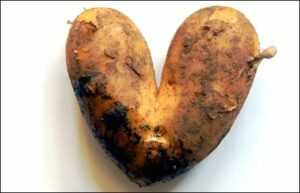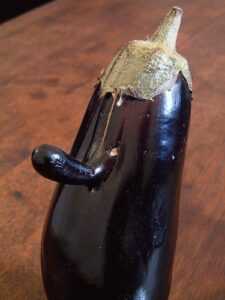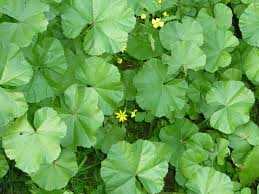NEW YEARS 5780 – CHANGES IN CHUBEZA DELIVERY SCHEDULES:
THIS WEEK OF ROSH HASHANAH:
- No Monday deliveries (We will be unable to deliver a vegetable box this week to some of you.)
Deliveries to Rechovot, Nez Tziona, Rishon Lezion, Mazkeret Batya, Gush Etzion, Jerusalem, Kfar Bin Nun and in certain neighborhoods in Tel Aviv will be moved to Thursday October 3. An email message as well as SMS message will be sent to all those whose Monday delivery will be transferred to Thursday during that week.
- Wednesday deliveries will take place on Thursday October 3.
DURING THE WEEK OF YOM KIPPUR:
- Monday deliveries as usual on October 7.
- Wednesday deliveries will take place on Thursday October 10.
DURING THE WEEK OF CHIL HAMOED SUKKOT, THERE WILL BE NO DELIVERIES, i.e. no deliveries on Monday October 14 or Wednesday October 16.
DURING THE WEEK OF SIMCHAT TORAH:
- The Monday delivery will be transferred to Tuesday October 22.
- Wednesday delivery (October 23) will take place as usual.
DURING THE WEEK FOLLOWING SUKKOT AND SIMCHAT TORAH, ROUTINE DELIVERY RETURNS!
Those who wish to increase the size and/or contents of your pre-holiday box, please inform us as soon as possible.
OPEN DAY:
In keeping with our twice-yearly tradition, we invite you for a Chol HaMoed “pilgrimage” to Chubeza’s field to celebrate our Open Day. This year’s festive Sukkot Open Day will take place on Thursday, October 17, the 18th of Tishrei (third day of Chol HaMoed) from 12:00 noon – 5:00 PM.
The Open Day gives us a chance to meet, tour the field, and nosh on vegetables and other delicacies. Children have their own tailor-made tours designed for little feet and curious minds, plus special activities and a vast space to run around and loosen up. (Open to adults as well…)
Driving instructions are on our website under “Contact Us.” Please make sure you check this before heading our way.
Chag Sameach and Shana Tova to all of you from all of us. We look forward to seeing you all!
___________________________________
 Over the upcoming holiday season, Ish Shel Lechem can only provide bread loaves for the Monday, Oct. 7th deliveries. (No bread will be baked on October 3rd or 7th.) Cookies and crackers are available and may be ordered at any time.
Over the upcoming holiday season, Ish Shel Lechem can only provide bread loaves for the Monday, Oct. 7th deliveries. (No bread will be baked on October 3rd or 7th.) Cookies and crackers are available and may be ordered at any time.
Ido and Carole will resume their regular baking schedule immediately after Sukkot and Simchat Torah.
Happy holidays!
______________________________________
Each year the grass grows green The squills go white, the citrus gold Every year the earth renews The sun comes up, the rain falls cold Each year so many new are born To happiness and grief, to laughter and to tear And someone who wants only good to prevail …this year.
– Leah Goldberg (translation: A. Raz)
In several days we will bid farewell to 5779 as 5780 gently breezes in. Many eager, holiday-dressed families will assume their places at festive tables to celebrate the new year together. In Jewish tradition, there are in fact four new years, or rather various dates over the four seasons which are each considered New Year’s, as detailed in Tractate Rosh HaShanah:
On the first of Nisan, the new year for the kings and for the festivals; On the first of Elul, the new year for the tithing of animals; Rabbi Eliezer and Rabbi Shimon say, on the first of Tishrei On the first of Tishrei, the new year for years, for the Sabbatical years and for the Jubilee years and for the planting and for the vegetables On the first of Shvat, the new year for the trees, these are the words of the House of Shammai; The House of Hillel says, on the fifteenth thereof
The month of Nisan marks the beginning of the holiday cycle, and the years of royal reign are counted from the first of Nisan. The month of Elul is when animals (especially sheep herds) are tallied; Shvat is the date that counts for growers of orchards and groves, and Tishrei is our very own Rosh HaShana – for the farmers growing vegetables in the fields. The perfect logic of this timing is something we actually can feel. Our bodies which sweltered over the long, exhausting summer days are softening and cooling down a bit, basking in the lower temperatures and earlier sunsets. Autumn is when the field completes its annual cycle: summer yields are ending, and autumn plants have already acclimated in the field to await the first showers and new beginnings. Chaperoning these winds of change are hopes and wishes for a blessed, fruitful and rainy year.
These hopes are tangibly expressed in the blessings and symbols of the holiday. The Talmudic sage Abaye, who was probably in charge of the Holiday Food Column, is the one who invented the symbolic dishes for the Talmudic table. In Tractate Krittut 6, 1: “Said Abaye: Now that you have mentioned that the siman has significance, every Rosh Hashanah, one should eat a pumpkin, black-eyed peas, leeks, beet greens and dates.” In a different place, someone on a major diet must have edited him and decided that one could only feast his eyes on the holiday table. In Tractate Horayot 12, 1: “Everyone should look at them.”
I like the holiday symbols, not necessarily because of their blessings (I can definitely do without all the curses and abuse to our enemies. Not my idea of an optimistic holiday atmosphere…), but because of the seasonal variation that the holiday table offers, bringing together guests of all sorts: from the green leaves (Swiss chard), the legumes (black-eyed lubia peas), the princess of onions (leek) and the gourds, the summer kings. Plus, of course, the pomegranate and dates, apples, honey and fish – all showcasing the bounty this blessed land naturally provides each season.
And as we sit at the festive table and think about the passing year (what we resolve to discontinue) and look forward to the new year (and what we hope it will bring), the seasonal meal suggests we linger in the present, eat something that is in fact here and now, being harvested in our fields as we speak. And together with what was and what will be, to experience that which is presently on the tip of our tongues and taste buds, crunching in our mouths, and smacking our lips in pleasure.
May our year be blessed!
And keeping with the ancient Chubeza tradition – our very own blessings for our Chubeza vegetable symbols.
Lettuce: Lettuce learn to accept the changes that even the known, accepted rituals undergo in hue, texture and flavor. Lettuce know to appreciate and not take for granted the loyalty of those who remain with us, now and forever.
New Zealand Spinach: May we acknowledge our strengths to survive and flourish in green freshness, even when the heat is on.
Silka (beet greens, Swiss chard): May we beet off self-doubt and undermining criticism, and may we cultivate a confident, strong, supportive spine as oh-so-stately as the chard’s.
Salad Green Assortment: May we learn to enjoy the variety, differences and vibrant diversity of everyone in this country.
Pumpkin: May we persevere, as the pumpkin, to the end of the vine.

Potato: May we learn from mistakes made in the past, of others and of our own. May we remember to vary our fields with many yields, and not only count on the simplest and most common (you can find an explanation right here).
Sweet Potato: May we enjoy sweet surprises that grew and ripened far from the naked eye, and may they bring with them wholeness and happiness.
Leek: May we have the patience to grow slowly and diligently, and the understanding that sometimes, in order to reach ripeness, one must grow very slowly. And spring no leeks.

Eggplant: May we try and succeed to see the light, whiteness and faint but beautiful purple hue within the murky dark.
Pepper: May we be blessed with the skill to pepper our speech with just the right phrases, without overdoing it. And when life gets salty, may we stand beside it to add some spice.
Cucumber: When others are in a dither, may we develop the sensitivity and ability to be calm, levelheaded and cool, as the cucumber.
Tomato: May our experiences be homegrown, ripened on the vine, full of juice, color and sweetness.
Coriander: May we rejoice in the difference in people’s tastes, in the differences between us, in the wonderful variety and vibrancy that create a symphony of opinions, varying faces and opposite choices.
Parsley: May we allow the good things to enter, fill and cleanse us from the poisonous and harmful. And may we live sparsely, as the parsley.
Dill: May our year be characterized by diligent work and solvable dilemmas.

Okra: May we gaze at the stars at least one night every-so-often to feel the lightness of our minuteness and the strength of being part of the vast cosmos. (slice the okra horizontally to see stars)
Black-eyed Pea (lubia): May our shiners be only from this pea.
Corn: May we have a bright, sweet and delicious year! (You heard it ear first….)
Mallow: This September, may we try to remember when life was sweet and oh, so mallow. Renew our days, as of old!

So here’s to the New Year, to great expectations and very wet showers — please, oh please, may they come in due time, in the proper measure. May they satiate the human salad of this country, and the animals crying out for drink, the dusty plants growing grey at the edges, the flying insects, the crawlers and jumpers, the rocks and clods of earth that so crave the blessing of rain.
And, beyond the rain, we wish you the fulfillment of your hopes and prayers, for good and for blessing, for happiness and growth. Shana Tova!
From the entire Chubeza crew in the field, the packing house, the office and on the roads: Alon, Bat Ami, Dror, Orin, Yochai, Mohammed, Majdi, Ali, Vinay, Thom, Hott, Montray, Assaf, Yuval, Daphna, Melissa, Ruthie, Alon, Eyal, David, Alon, Ziv, David, Melanie, Aliza.
________________________________
WHAT’S IN THIS WEEK’S HOLIDAY BOXES?
Monday: Potatoes, sweet potatoes, eggplant, cucumbers, cherry tomatoes/ tomatoes, lubia Thai yard-long beans/Iraqi lubia, slice of pumpkin, parsley/coriander/dill, lettuce, leeks. Small boxes only: corn.
Large box, in addition: Okra, New Zealand spinach/Swiss chard, bell peppers, baby salad greens
FRUIT BOXES: Pomegranates, mango, apples, bananas. Large boxes: Kubo (cactus fruit)
Wednesday: Sweet potatoes, cucumbers, New Zealand spinach/Swiss chard, cherry tomatoes/ tomatoes, lubia Thai yard-long beans, slice of pumpkin, parsley/coriander/dill, lettuce, bell peppers, corn. Small boxes only: baby salad greens.
Large box, in addition: Potatoes, okra/Iraqi lubia, leeks, eggplant.
FRUIT BOXES: Pomegranates, mango, apples, bananas. Large boxes: Kubo (cactus fruit).
